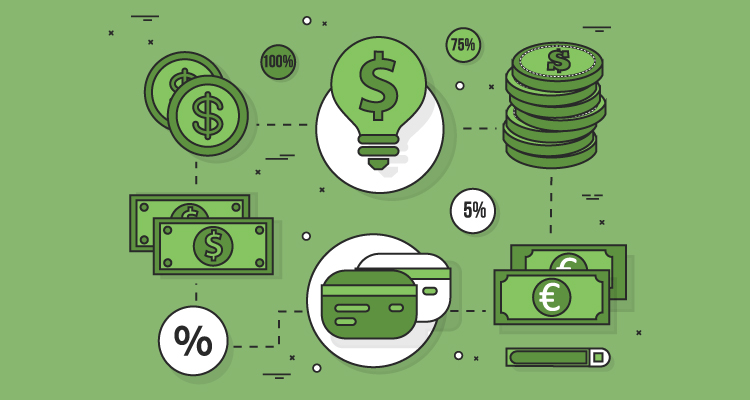Debt is one of those silent trolls that can creep up and terrorize your business. Debt isn’t all bad, but using debt to grow your business can get out of control if you’re not careful. Having debt can put a strain on your business and debt on a credit card specifically can be costly.
Up until last year, I’ve avoided going into debt for my business entirely. Now I have a bit of debt from an investment that I’m paying off. Since then, I like to deal in strictly cash. Here are a few ways to avoid going into deep business debt.
Fund Your Business Bank Account Every Time You’re Paid
Keep cash in a business account for transactions instead of using debt. I have various recurring business expenses for the month. There’s hosting for my website, my virtual assistant, my accounting system membership fee, and more. Payments for all of these things come from the business account in cash.
Every time I get paid, I leave about five percent of the paycheck in the business checking account. Because of this, the balance slowly grows which helps me now pay for other larger business purchases. I’ll be using a few hundred dollars of that money to buy a plane ticket soon for a conference.
Use Affordable Debt Vehicles
All debt products aren’t made equal because of the interest rate. Credit cards generally have a higher and variable interest rate compared to loans that can have a competitive rate that’s fixed for an entire term.
The most affordable financing for your business is probably credit cards that have an interest-free period. Credit card companies often offer 0% APR on an introductory deal to get you to sign up. The 0% APR deal may be available for 18 months or more depending on the card.
The benefit of this is that you can charge to the card and slowly pay it off. It’s an interest-free loan. However, the catch here is that standard interest applies to the balance if you don’t pay it off before the introductory ends.
If you need a longer time frame to pay off the debt, a personal loan may be the right choice. Many online alternative lenders offer personal loans at a competitive price. When you need to borrow for your business, choosing the right product will help you avoid the debt trap of mounting interest.
Think Before You Spend
Lastly, staying out of business debt means you need to make smart buying decisions. I’m someone who’s debt-averse in my personal and business life, so I’m highly vigilant of the money I’m spending. I try to spend a limited amount of money on information at this stage in my career. I spend most of my cash throughout the month on tools to run my business.
If you feel like money is constantly slipping through your fingers, I recommend the book Profit First by Mike Michalowicz. It’s a book that completely changed my life and the way I manage business cash. Grab it if you’re having trouble managing cash flow. Again, debt isn’t bad. It can, however, present a challenge when you get into a cycle of borrowing that makes your business less profitable.
If you are in business debt, come up with a pay off strategy, start using cash, and be more cautious with how you spend from here on out.












